Clams and cannon fire? Amy Russo has a blast at a historical clambake in East Providence
Correction: A previous version of this article misstated who is responsible for firing the cannon. While the Kentish Guards fired the cannon for years, this year it was the job of the Bonnet Shores Battery.
I’ve eaten them — steamed, fried, chopped in a chowder or sprinkled in a fritter — fished for them, digging them out of the sand alongside an expert quahogger, and admired them.
That’s right, I’m talking about the ever-ubiquitous, ever-popular clam.
But there was one thing that until last week I had yet to experience: an old-fashioned New England clambake.
At East Providence’s Squantum Association, clambake bliss is on the menu every year. But its history predates the club’s founding.
It all began in the summer of 1843, when two groups began traveling out to Whortleberry Island, also known as Huckleberry Island, for clambakes. That included the Benefit Street Boys, composed of soon-to-be Providence High School graduates, and the Rowseville Boys, a mix of area merchants and cotton buyers — a reminder of Rhode Island’s ties to slaving, as much of its cotton came from the South.
Amy's Rhode: Amy Russo tests the waters with a kayak trip on RI's 'wild and scenic' Wood River
Amy's Rhode: What's a BioBlitz? Amy Russo joins volunteers recording abundant life in ordinary places
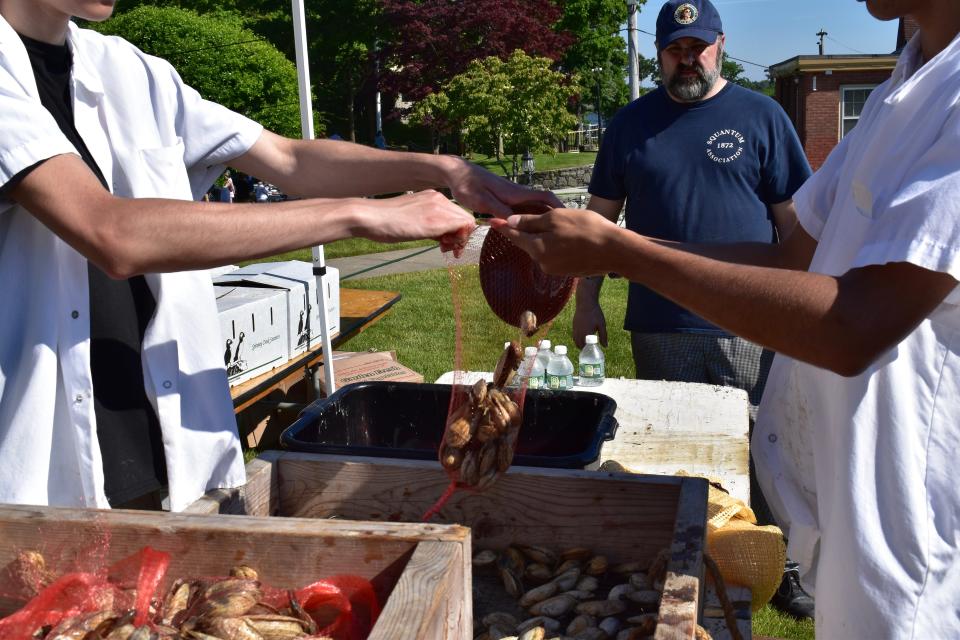
In 1870, the island’s owner pushed out the diners, which threatened to halt the annual bakes.
That year, Shubael Cady, a boat captain who typically arranged the festivities, bought Squantum Point, a nearly 3-acre tract on the mainland, for a meager $2,200. The association was born, named in honor of Patuxet tribe member Squanto, who served as a translator in Plymouth colony.
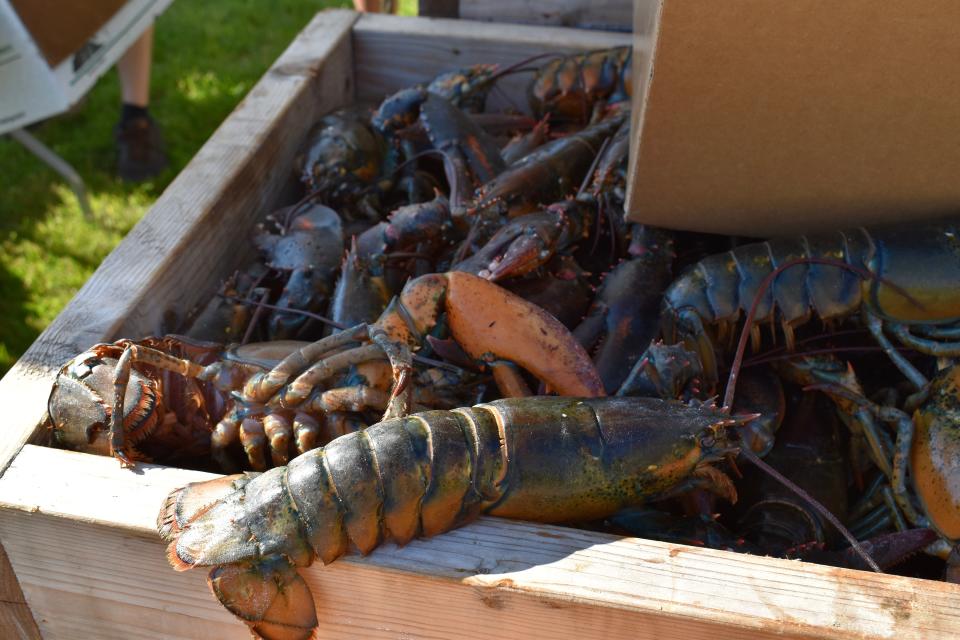
How does a clambake work?
Fast-forward some 150 years and clambakes remain a tradition that goes something like this: A few hundred clams, a few boxes of lobster, and heaps of corn on the cob are placed atop a fire piled with rocks, seaweed and wooden grates. A heavy tarp is draped over the mountain of mollusks to hold in the steam, and that smoky, salty taste.
Amy's Rhode: As Providence's Graduate hotel turns 100, Amy Russo checks into all those spooky rumors
Amy's Rhode: Which famous figures have visited RI's Kingston Village? Amy Russo follows their footsteps
In the meantime, attendees feast on a smorgasbord of lemony oysters, chowder and clam cakes, which, for me, have become their own food group since I first sampled one last year on the shore of Oakland Beach. For all this, visitors get not only a serving of shellfish but a side of history, and some very loud cannon fire.
New to RI: Clam cakes and stuffies and chowder, oh my!
Amy's Rhode: What's new with RI's rugelach maven? Amy Russo hears plans for expanded food truck menu
In previous years, members of East Greenwich’s Kentish Guards arrive in uniform and fill a Civil War cannon from the First Battle of Bull Run -- this year, it was the Bonnet Shores Battery. Only instead of a shot, the cannon is loaded with frozen tennis balls. Any one of the clambake’s guests are welcome to try their hand at aiming the cannon toward a target floating in the Narragansett Bay in a mostly fruitless attempt to strike it. Each time, at the cannon’s sound, astonished gasps and whoops could be heard from the more skittish in the crowd, including one declaration from a club member, around the cannon’s 10th shot, who said she’d had enough.
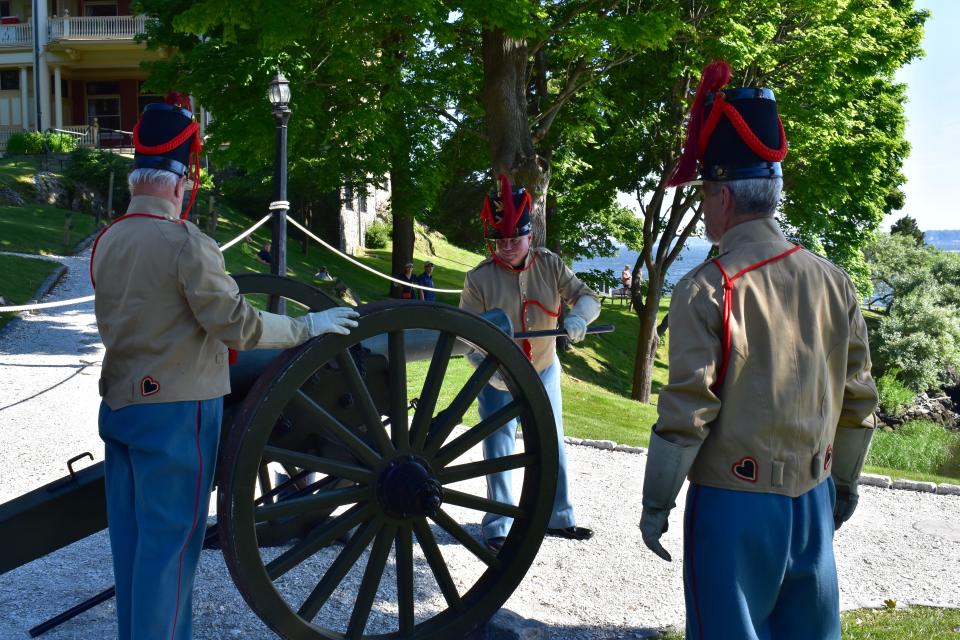
Gen. Ambrose Burnside — the famed Rhode Islander after whom sideburns were named — was one of three Civil War veterans who were once on the club’s membership roster, and he signed the cannon over.
Amy's Rhode: Amy Russo gets a wall-to-wall RI history lesson at a Colonial farmstead in Lincoln
Amy's Rhode: RI's Touro Synagogue, icon of religious liberty, has a lot to teach you during tours
A surprising discovery beneath the building
Current board member Paul Williams has been digging up such documents in the club’s basement, assembling them in a binder complete with menus from clambakes of yore, and black-and-white photos.
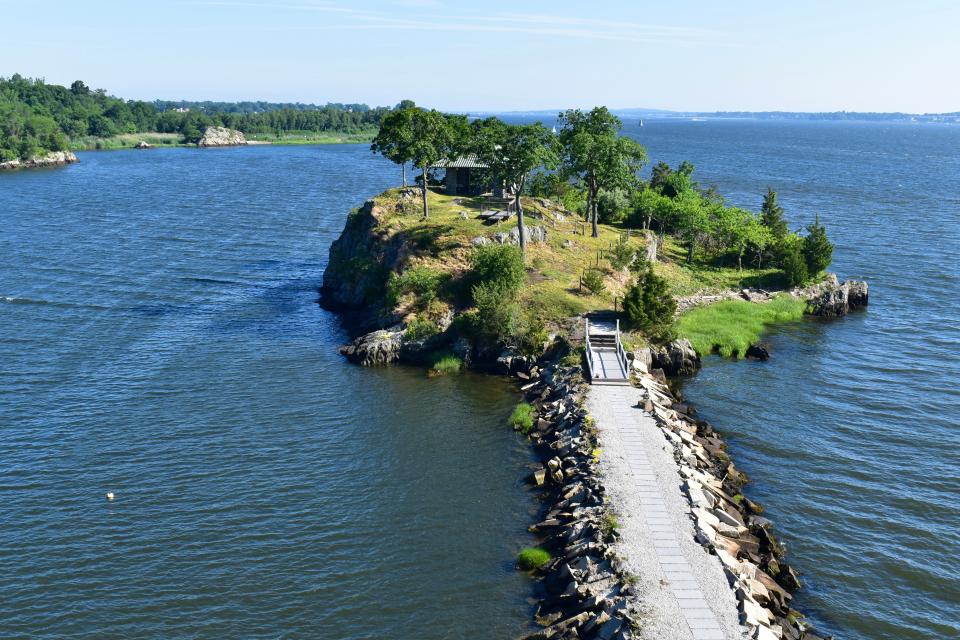
Williams’ deep dive into the club’s past even led him to a crawl space with a headlamp last year, where he discovered an old crate underneath the building. It had belonged to the Black Duck, an infamous rumrunner that dumped cases of scotch into Narragansett Bay, which members fished out and hid beneath a trap door during the Prohibition Era. Some opted to stash their liquor in a wall of wooden lockers within the clubhouse bar opposite a massive moose head.
Amy's Rhode: Amy Russo finds harmony with Jamestown's Everybody Chorus
Amy's Rhode: Gravestones tell a lively story about Westerly granite on Amy Russo's cemetery tour
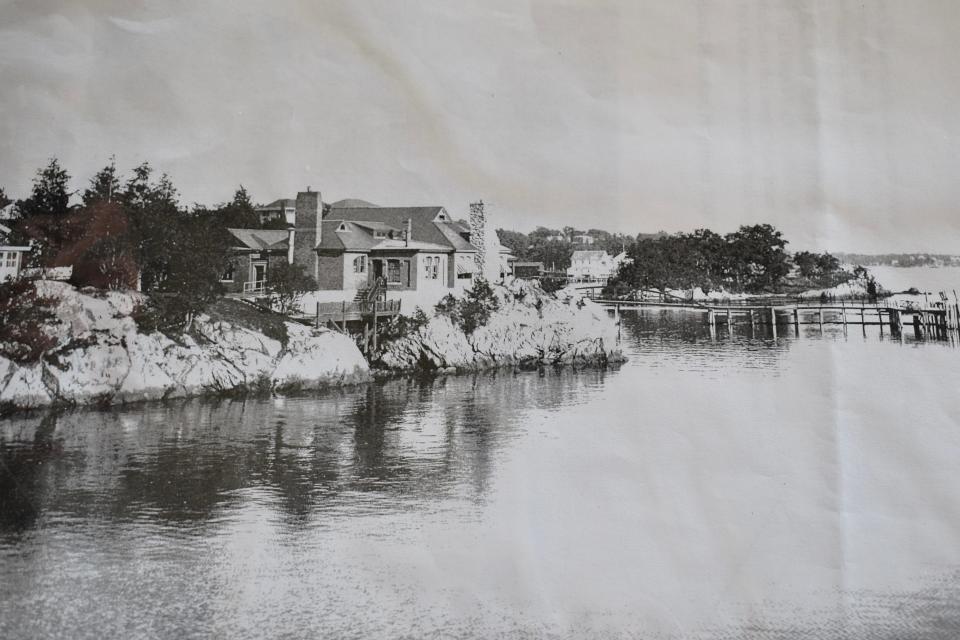
Thankfully, nowadays, finding a glass of wine to go with your clams doesn’t involve a lock and key.
My only dilemma arrived when I returned home, where, hunched over a small bathroom sink pumping pear-scented soap into my palms, I wondered how many times one must wash their hands to banish the smell of shellfish.
Industrial-strength cleaner would have been a better solution.
Amy's Rhode: A new Buddy in Providence: How Amy Russo's rescue dog is repaying her with friendship
Amy's Rhode: Amy Russo goes one-on-one with RI park ranger who plays founder Roger Williams
Providence Journal staff writer Amy Russo, a transplanted New Yorker, is looking for new ways to experience her adopted state. If you have suggestions for this column, email her at amrusso@providencejournal.com.
This article originally appeared on The Providence Journal: Clambakes in East Providence come with history and cannon fire

